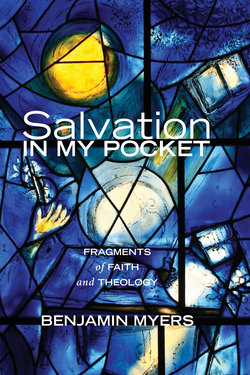Читать книгу Salvation in My Pocket - Benjamin Myers - Страница 9
Berlin
ОглавлениеIt has been said that great books are the ones that have to teach us how to read them. It is the same with cities. London cannot teach you how to experience New York, any more than Dickens can teach you how to read Dostoevsky. And when you are in Berlin, the correct way to experience the place is by bicycle.
Now there are people—you will have heard of them, I’m sure—who believe that riding a bicycle is a “sport,” a way to “keep in shape,” something that is merely “good for you.” Nothing is more morally or aesthetically objectionable than such a cyclist, zipping through the traffic lights in his skintight lycra suit and shiny torpedo helmet, sanctimoniously sipping water from an aerodynamic flask strapped to his shoulder.
Who is this fellow? What is he about? He is performing that peculiar Calvinistic ritual that is known as Exercise. On the surface he might appear gregarious enough, but in truth he is a mean unsympathetic creature, this secular ascetic with his sculpted buttocks and his strap-on water bottle. He pursues cycling for his own selfish ends, and therefore cannot enjoy it. To him, it is all the same whether the bicycle actually goes anywhere or whether it is fastened to the floor of a gymnasium, a mere simulation, one of those monotonous unmoving Exercise Bikes that are exactly like a real bicycle in every respect except that they have no wheels and cannot propel you down the street.
There are some things that are corrupted by proficiency. The expert lover, the slick preacher, the professional childcare provider—these are not honest things, because good honest preaching and childrearing and lovemaking require some element of awkwardness and ineptitude and surprise, something tenderly human that resists the cold logic of technical mastery. Just so the cyclist: the fast expert sporty cyclist is an ungodly man, you can count on it. He speaks harshly to his children and spends hours grooming his fingernails and has always felt, deep down, that his father didn’t love him. He uses the bicycle the way an expert lover uses a woman, his mind absorbed by all the correct techniques for stimulating pleasure, working at her body as coolly and clinically as a pornographer. Such a lover goes nowhere with his beloved, just as the Exercise Cyclist goes nowhere on his bicycle but stays imprisoned in his own immaculate body even as he whizzes through the city looking straight ahead with a steely gaze through four-hundred-dollar wraparound pink sunglasses.
Expert cycling, therefore, I abhor. Expert cycling belongs in no proper self-respecting city. But the bicycle as a vehicle—the bicycle not as an instrument of self-improvement but as a machine of transportation, the bicycle as a strictly utilitarian way of getting about town—now that is a noble and excellent thing, beautiful and true and good in its rattling clattering swiftness, all legs and arms and wheels and whirling gears.
What could be nobler than a bicycle? For in the bicycle, you take the most marvelous, ancient, portentous triumph of human invention and ingenuity—the wheel!—and append it to the human anatomy so simply, so naturally, that you would think the human body had been designed for nothing else than wobbling about town on a pair of wheels. Perhaps a million years from now the human species will be born with wheels instead of legs; it would be an improvement. But for now, this spoked, sprocketed, handlebarred, rubber-tired, pedal-pushed apparatus supplies what nature lacks.
Berlin reveals itself to the cyclist, just as Paris reveals itself to the walker and Los Angeles to the freeway driver and Dublin to the drinker. If you want to know what Berlin is, throw away your guidebook, forget about all those tourist sites, and don’t even think about setting foot in one of those brand-new bright red sightseeing buses. If you want to know what Berlin is, all you need is some loose change in your pocket, a scarf around your neck, and a bicycle between your legs.
